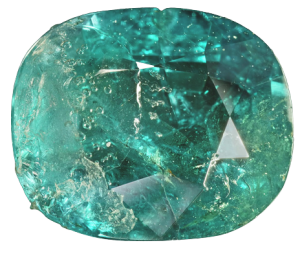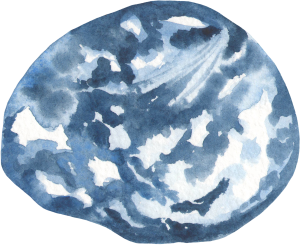Alexandrite & Pearl
 Alexandrite
Alexandrite Pearl
Pearl
Alexandrite, the birthstone for the month of June is known as the colour change gem. It is a rare Color-change gem. If you’re a person who loves magic, you’ll love Alexandrite. When exposed to daylight, it is a cool, bluish and mossy green. Under the lamplight, it is a red gem with a warm raspberry tone. Combination Prompted the description, “emerald by day, ruby by night.”
You can see it change colour by switching from fluorescent to incandescent light. The value of the gemstone becomes higher when the change in colour becomes more distinct.
This exceptionally rare and valuable gem was originally discovered in Russia’s Ural Mountains in the 1830s, it is now found in Sri Lanka, East Africa and Brazil as well. The Precious stone was named after the Empire Czar Alexander II.
The unique colour changing properties of this precious gem is formed by the slight impurities that is present in the element chromium.
The most desired colour are those that show a pure hue of colour change such as pure green/blue on daylight and pure red in incandescent light. Only the hue is changed by the alexandrite effect. Tone & Saturation usually remains the same.
Alexandrite is said to have regenerative powers. The stone is said to instil the feeling of courage allowing one to face changes without any fear. The gem reinforces self-esteem and enhances in us the ability to experience joy and beauty. This gem gives you the ability to appreciate and acknowledge the interconnectedness of all nature.
The gemis said to reduce inflammation, reduce tension and stress and also helps in the better functioning of pulmonary and circulatory systems. Inner ear problems and motion sickness can be controlled with the help of this gym. It is also said to release symptoms of Alzheimer’s and Parkinson’s disease.
This colour changing gem not only has great value, but also helps in physical and emotional healing. This is the best gift that you can give your loved on born in the month of June. Get in touch with us to find out more about the products we Design.

Pearl is the birthstone for the month of June. Pearls have been adorned and worshipped by mankind throughout history. These gems were referred by the Persian mythology as the “Tears of the gods,” while ancient Chinese legend believed the moon held the power to create pearls, instilling them with its celestial glow and mystery.
A pearl is produced by a living organism. Which makes it an organic gem? A natural pearl forms in a pearl being mollusks with no human intervention or assistance. Because of the difficulty that is faced to recover natural pearls from the ocean’s depths, man invented the technique of culturing salt and freshwater pearls from mollusks carefully seeded with irritants similar to those produced by nature
Pearls usually come in colours of white and cream. Black, grey and silver are also quite common. The main colours can also be modified by adding additional colours called overtones which are pink, green purple or blue. Pearls are mostly bleached to enhance the luster.
Pearls come in two types, cultured pearls and natural pearls.
Pearl Culturing is an adaption of the natural pearl formation process. Cultured pearls are pearls that are made by the constant intervention of human care. Most of the mollusks that help in the culturing process are raised for the process of making pearls. In 1890 Several Japanese researchers and a few Austirilians pursued Blister pearl culturing. Kokicho Mikimoto was one of them who went on to great commercial success in pearl culturing and marketing. He gets most of the attention from historians.
The different types of pearls include:
In addition to natural & Culture whole pearls you ‘ll find other pearl products on the market.
Natural pearls are naturally formed in the bodies or mantle tissues of certain mollusks. People have coveted natural pearls as symbols of Wealth and status for thousands of years.
Pearls signify purity, honesty, integrity, concentration, focus, meditation, tranquillity and wisdom. It enhances personal integrity and helps in focusing on one’s attention. It is also known as the “stone of sincerity” and inhibits boisterous behaviour.
Pearl helps in treating digestive disorders. This gem also increases fertility and eases childbirth.
Today, pearls come in both classic and contemporary styles; a strand of white pearls can be timeless but a bracelet of chocolate pearls is more modern. No matter the size and colour, pearls are the only gems that go perfectly well with both your daily wear and your formal wear.